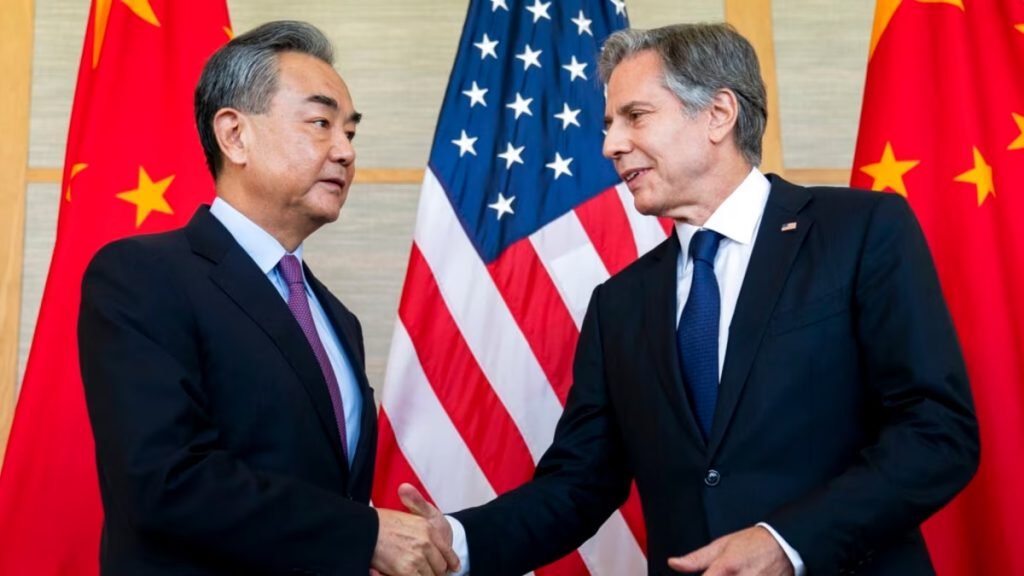The “Blinken visit,” which was originally scheduled for February but postponed due to the appearance of a suspected Chinese spy balloon over the U.S., holds the potential for a meeting between Blinken and Chinese leader Xi Jinping.
Washington and Beijing are intensifying preparations for a highly anticipated visit to Beijing by U.S. Secretary of State Antony Blinken later this month.
Both sides have confirmed that U.S. Secretary of State Antony Blinken plans to engage in meetings with high-ranking Chinese officials, including top diplomat Wang Yi and Foreign Minister Qin Gang, during his upcoming visit to Beijing. However, sources familiar with the matter indicate that they have not yet finalized the decision regarding a potential meeting with Chinese leader Xi Jinping, which leaves its possibility uncertain.
Rescheduling the “Blinken visit” would play a significant role in revitalizing high-level exchanges and preventing further deterioration of the U.S.-China relationship. Bloomberg reported the plans for Blinken’s visit to Beijing this month, which could potentially include a meeting with Chinese leader Xi Jinping. Both governments’ spokespeople have stated that they currently have no new information to share.
Get WSJ Renewal Digital Edition Here
Preparations for the “Blinken visit” gained momentum following a recent trip to Beijing by Daniel Kritenbrink, the top State Department official for East Asia. Kritenbrink engaged in discussions with Chinese officials, including Vice Foreign Minister Ma Zhaoxu.
China has expressed its openness to dialogue with the U.S., with Chinese Embassy spokesman Liu Pengyu stating that China hopes the U.S. will meet them halfway and implement the important consensus reached by the two presidents at the Bali summit. The State Department spokesperson, Vedant Patel, emphasized that the “Blinken visit” will be rescheduled when conditions permit.
The past year has witnessed tensions between the U.S. and China on various fronts, including trade, Taiwan, technology, human rights, and China’s relations with Moscow during the Ukraine conflict. The incident involving the suspected spy balloon further complicated matters, particularly after the U.S. decision to shoot it down, which Beijing criticized as an overreaction.
Nevertheless, there have been recent efforts to improve relations, although they have encountered some hurdles. While China’s military has shown reluctance to enhance communication with the U.S., Beijing has demonstrated a greater willingness to engage in talks on other matters.
Check out our line of valuation services
Previous reports have highlighted preliminary visits by U.S. officials, such as Deputy Assistant Treasury Secretary Robert Kaproth and CIA Director William Burns. Meetings between Chinese and U.S. officials, including Commerce Secretary Gina Raimondo and Chinese Commerce Minister Wang Wentao, have also taken place. Burns’ secret trip to China in May aimed to keep lines of communication open, paving the way for the “Blinken visit” and potentially subsequent visits by other U.S. officials.
A successful “Blinken visit” could pave the way for subsequent visits to Beijing by Treasury Secretary Janet Yellen and Commerce Secretary Gina Raimondo, as previously discussed by both governments. If executed as planned, this sequence of visits would serve as a step towards fulfilling the commitments outlined by President Biden and Xi during their meeting in November, indicating a renewed dedication to addressing key issues such as trade disputes, security concerns, and economic policy disagreements.





